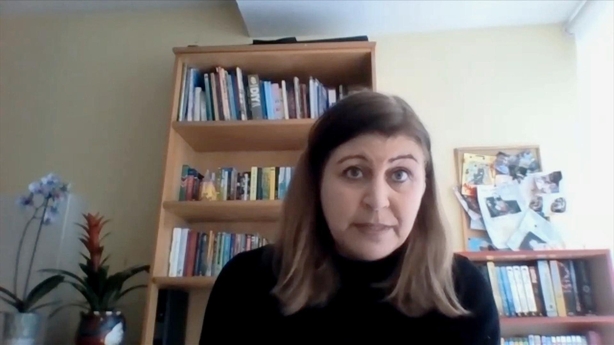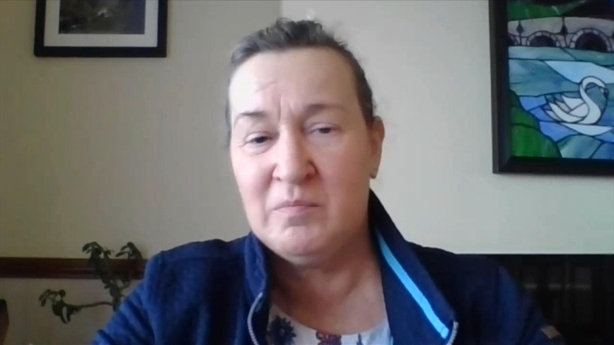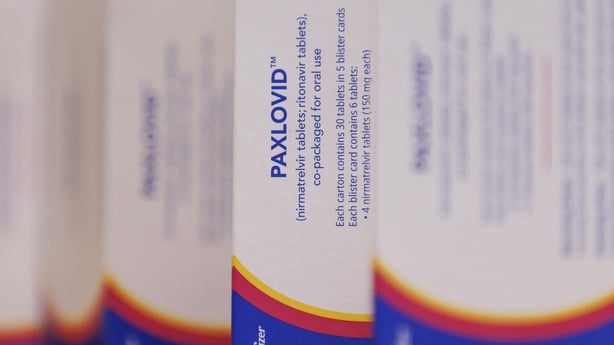Louis Duffy-Barrett has been stuck indoors for nearly two years. He hasn't been to pubs, restaurants, or concerts since March 2020, and the easing of restrictions hasn't changed that.
When Taoiseach Micheál Martin announced on 21 January of this year that most remaining restrictions would end, Louis' world shrunk even further.
Born with cystic fibrosis and having had a double lung transplant in 2018, he's considered high risk in relation to Covid-19.
In his hometown of Greystones, Co Wicklow, local walking trails allow Louis to engage in his passion for photography.
But, when it comes to socialising with friends, his main link to the outside world is online gaming at home.
From his desktop, he can both play shoot-em-ups and chat to his pals online, who are also gaming enthusiasts.
A home gym containing an exercise bike, treadmill and dumbbells allow Louis to maintain his fitness without having to enter a public gym, which he would consider too risky at the moment.
He wants to return to his normal pre-Covid life, when he frequented public venues and travelled regularly. But he would like the number of daily Covid cases to fall significantly before he considers this. On Thursday 9,441 cases were logged across Ireland.

"It seems like everybody is getting back to normal with going out and travelling, going to pubs. I'm kind of left behind," he told Prime Time.
"The antiviral pill would give a bit of hope for us if it works well for immunosuppressed people. Hopefully, the numbers come down in the summer as well. With those two things, we might be able to get back to a little bit of normality."
The development of antiviral medication such as Paxlovid, manufactured by Pfizer in Ireland, and Lagevrio, made by MSD/Merck, has given new optimism to many medically vulnerable groups.
Jan Rynne, who lives in Dublin, has chronic lymphocytic leukemia and has been shielding since the pandemic began. She's hoping antiviral medication becomes available for her soon.
"There are people like me waiting for access to new Covid therapeutics, antivirals and monoclonal antibodies. We need a plan B and the irony is that those treatments are actually being made here in Ireland and shipped to the UK," Jan told Prime Time.
Covid therapeutics could potentially be a game-changer for Jan and a return to normal life. If she contracted Covid, providing she receives access to monoclonal antibodies and antivirals quickly, they could keep her out of hospital. But, until they are available, she will continue to shield.

"I have no way of knowing how I will respond to Covid. It's a little bit like Russian roulette, but the gun is practically fully loaded for me – and it's a chance I'm not prepared to take."
In response to a question from Prime Time about when Pfizer's Paxlovid will become available in Ireland, the HSE said deliveries of Paxlovid will likely be received in March. But it could not give an exact date due to the uncertain nature of the supply line.
On Thursday, the National Public Health Emergency Team (NPHET) recommended that mask wearing, where currently regulated, should end.
But Bridget Langton from Graiguenamanagh, Co Kilkenny, will not be heeding that advice. She had a kidney transplant in 1996 and her immune system is vulnerable.
"Wearing masks may soon not be mandatory here, but even if it becomes a case of not needing to wear a mask anymore, personally, I will not give it up."
Bridget spends a large portion of her day at home. She describes herself as a cinephile but has ceased travelling to the nearest cinema with her husband. Indoor pubs and restaurants are also not something she would consider, particularly since Covid certs were scrapped.
"The last two years, to me, have felt like prison and the sentence continues because, now that everything has been opened, I'm even more vulnerable. People are free to go as they want, but I'm very uncomfortable in that situation. We fought so hard to get our Covid certs and now it means nothing."
The Irish Kidney Association on Thursday voiced its concern over NPHET's recommendation to remove mask wearing, stating it is "concerned that there is no safety net in place for high-risk patients, therefore, removing the face mask mandate at this time seems premature".

Bridget feels both NPHET and the Government are not taking medically vulnerable people into consideration at the present time.
She's not the only one concerned at Thursday's recommendation. Niamh Ryan's son Liam is 13 years old and has severe cerebral palsy.
He has several issues with his lungs and has a compromised immune system. The Ryan family are shielding at home in Portlaoise, where they tend to Liam, who needs round-the-clock care.
His twin brother, Sean, is in his first year of secondary school and has been wearing a mask during classes. It has given both Sean and his mother Niamh added comfort. Now that could be set to change.
"We would be very worried if they were to get rid of the masks in school. None of us want to go back into lockdown but we would like it to be done in a safe way for everybody."
"Liam is so vulnerable we can't take any risks with him so we are still at home as much as we can," Niamh told Prime Time.
"It's all about opening up, and we get that the economy has to get going and society has to open up again but there really has not been many mentions of vulnerable people or their carers," she said.
"If the carer gets sick, who takes care of the vulnerable person?"






